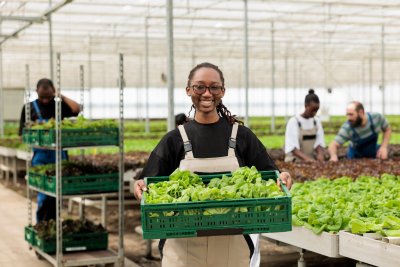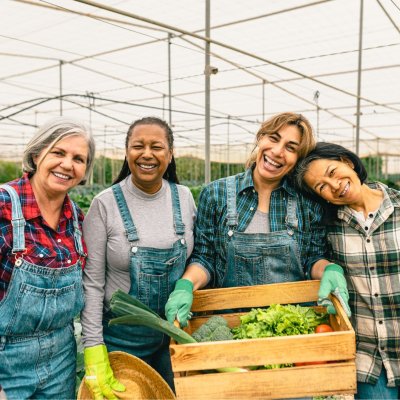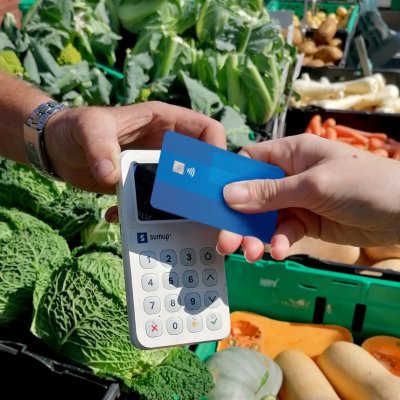Around the UK, local food systems are helping to create thriving town centres, stronger local economies and fresher, more delicious food in climate and nature-friendly ways.
And local food brings resilience. In a world increasingly impacted by climate and political disruption, having more food production close to where people live is just common sense.
Despite all these benefits, local food currently makes up a tiny proportion of the food on offer to us.
A whole range of barriers stand in the way; from the political, to the financial to the infrastructural.
We believe things can be different. We can grow our local food systems to help us address some of the biggest environmental, social, economic and wellbeing challenges we face today.
So we’re co-creating a plan to grow the local food sector across the UK and we want your help.
Check out Sustain’s report The Case For Local Food for more detail on the benefits.

Local food means different things to different people. For us, it’s typically characterised by the following:
‘Local’ is a relative term that means different things in different contexts, so setting a one-size blanket ‘food mile distance’ that makes food local doesn’t really work. For example:
So rather than being about distance alone, truly local food brings closer proximity between producer, processor and eater and maximises the economic and environmental benefits locally.
Not at all! Not all types of food can be produced everywhere at all times of year. So we need our food to come from a mix of places. We’re big fans of the Food Zones model created by Growing Communities.
But we know that much more of our food could be produced much closer to where people live and that that brings resilience for our communities in disruptive times.
The produce I was supplying the restaurants lasts two weeks longer than anything else they're getting because they're getting it straight from the farm, you know, so why wouldn't anyone want that?
SourceGrow Northern Ireland

Local food just ticks a lot of boxes; environment, community, connection between farmer and consumer, economic benefits to the local area, and more resilience.
Seb Mayfield, Ooooby
Local food systems respond quicker than big ones. They are built on relationships between people, and help people build relationships. It's not competitive, they all support each other and are bigger than the sum of their parts.
Nikki Storrar

© Sustain 2025 Registered charity (no. 1018643) Data privacy & cookies